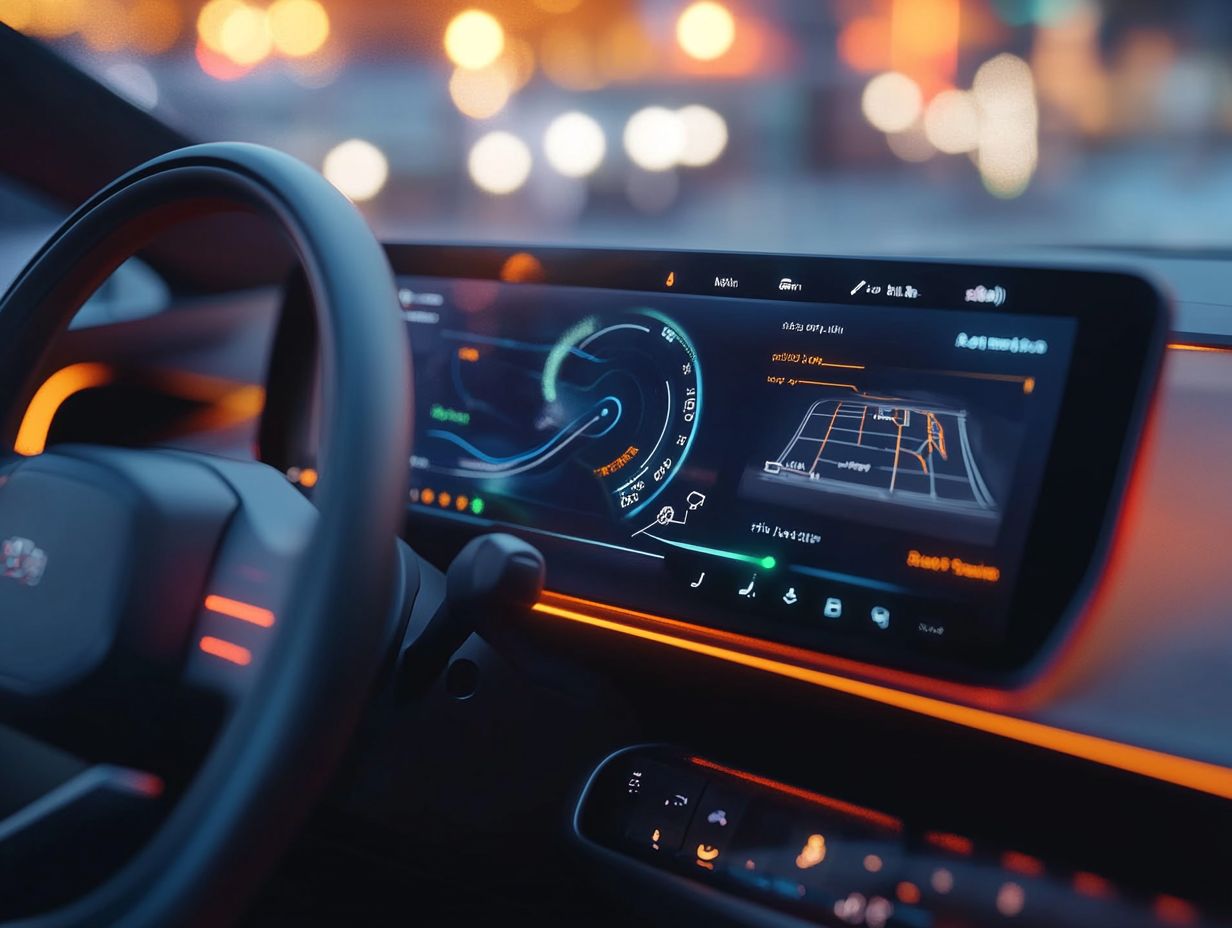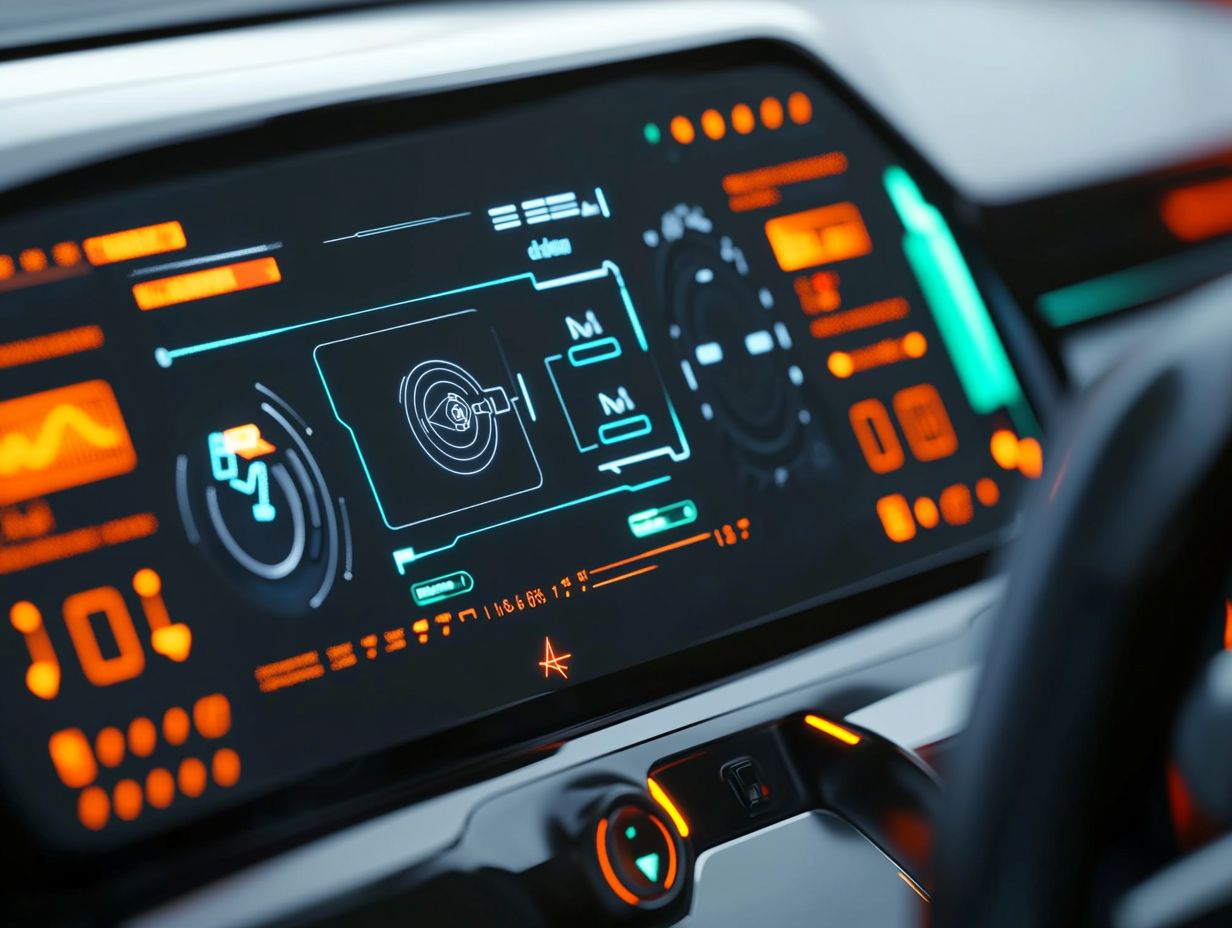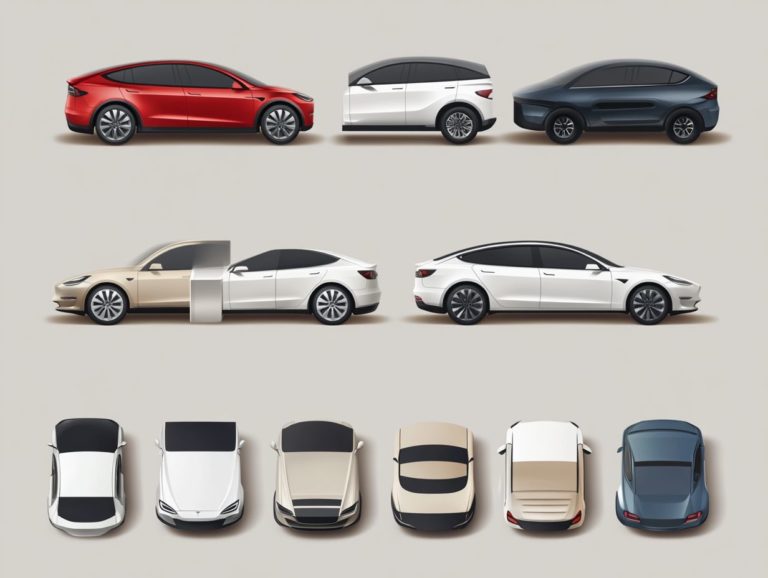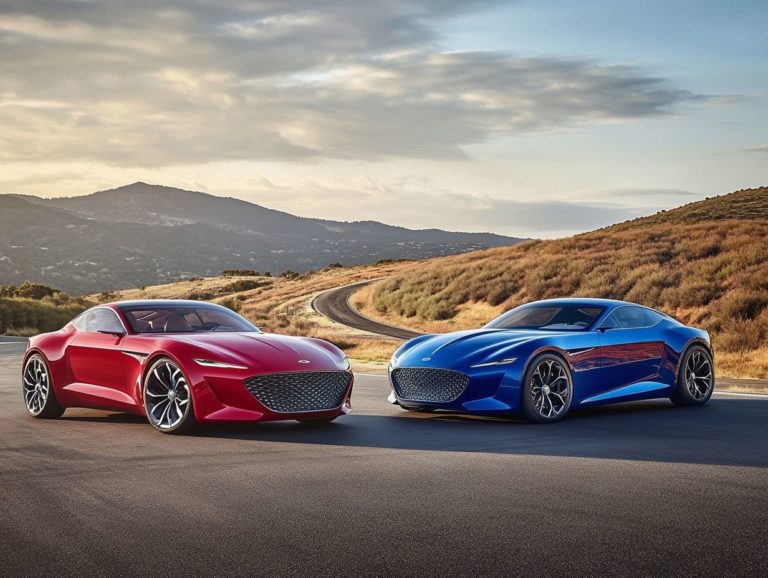Understanding Feature Sensitivity in Electric Cars
Electric cars are transforming how we think about transportation! They mix innovation and sustainability.
This article explores what electric cars are, highlighting essential features like battery types, motor efficiency, and charging options. These aspects directly influence performance and cost, helping you make informed choices.
When considering your driving habits and budget, understanding these elements will guide you toward the electric vehicle that fits your needs.
Contents
- Key Takeaways:
- What are Electric Cars?
- Key Features of Electric Cars
- Importance of Feature Sensitivity
- Factors to Consider When Choosing an Electric Car
- Table of Contents
- Frequently Asked Questions
- What is feature sensitivity in electric cars?
- Why is understanding feature sensitivity important for electric car owners?
- Which features are most sensitive in electric cars?
- Can feature sensitivity in electric cars be improved or modified?
- How Does Feature Sensitivity Differ Between Electric Cars and Traditional Gasoline Cars?
- Where Can You Learn More About Feature Sensitivity in Electric Cars?
Key Takeaways:

What are Electric Cars?
Electric cars, or electric vehicles (EVs), represent a major advancement in transportation, using rechargeable batteries instead of combustion engines that pollute the air.
These vehicles are gaining popularity due to government incentives aimed at reducing environmental damage and enhancing sustainability.
The growing adoption of electric vehicles highlights their importance in discussions about climate change and the future of sustainable transportation.
Key Features of Electric Cars
Electric cars feature battery types, motor power, efficiency, and various charging options, all contributing to their rising popularity.
As these vehicles improve, understanding these features is key to grasping sales trends and consumer preferences.
Battery Type and Capacity
Battery technology is crucial for electric vehicles, affecting range, efficiency, and overall performance.
Among the options available, lithium-ion and solid-state batteries stand out. Lithium-ion batteries are popular due to their high energy density and affordability.
Solid-state batteries promise enhanced safety and better longevity. The capacity of these batteries determines how far you can drive on one charge.
When making your choice, remember that sustainability and environmental impact are growing priorities, leading manufacturers to seek greener alternatives.
Motor Power and Efficiency

Motor power is crucial in shaping the acceleration and overall driving experience of electric vehicles. Efficiency metrics play a key role in maximizing performance while minimizing energy consumption.
A well-balanced electric car offers instant torque, enabling swift starts and smooth acceleration. This significantly enhances your driving experience.
When comparing various models, you’ll be amazed at how some truly shine in terms of efficiency ratings. Effective motor power can lead to impressive energy savings.
For instance, the latest models from top manufacturers exhibit a remarkable ability to convert stored energy into propulsion, often outpacing older models. These advancements deliver exhilarating driving dynamics and help reduce electricity costs, providing greater environmental benefits. This highlights the pivotal role of motor power in shaping the future of sustainable transport.
Charging Options and Speed
Charging options for electric vehicles present a spectrum of solutions, from home chargers to public fast-charging stations. The speed of charging is a pivotal factor in your decision-making process and overall convenience.
As you explore your options, you’ll find that Level 1 chargers, commonly located in residential settings, provide a slower charging process. In contrast, Level 2 chargers offer a significantly faster alternative, ideal for both home and commercial environments.
Fast-charging stations, using Direct Current (DC) technology, enable quick battery replenishment. This transforms long-distance travel from a daunting challenge into a practical reality.
Government incentives are shaping the infrastructure for charging stations, fostering the development of more accessible charging points. With widespread availability, convenience enhances the appeal of electric cars, driving their adoption among a diverse range of consumers.
Importance of Feature Sensitivity
Feature sensitivity in electric vehicles involves understanding how various elements, such as battery technology and motor efficiency, influence performance, total cost of ownership, and your environmental impact.
Recognizing these features can significantly shape your experience, allowing you to make informed choices that align with your financial considerations and sustainability goals.
How Different Features Affect Performance and Cost
The interplay between various features of electric cars plays a crucial role in shaping their performance and cost of ownership. Advancements in battery technology and motor efficiency lead the way in both innovation and affordability.
For example, newer lithium-ion batteries not only boost your driving range but also reduce the frequency of expensive replacements, ultimately cutting down your long-term expenses.
Similarly, enhanced motor efficiency allows electric vehicles to convert energy into motion more effectively, resulting in lower energy consumption and significant savings, especially when it comes to charging.
These innovations enhance not just your driving experience but also the overall financial viability of electric vehicles. As market options expand and technology evolves, the influence of these features will determine your initial purchase price and shape the long-term economics of owning an electric vehicle.
Factors to Consider When Choosing an Electric Car

When selecting an electric car, consider several essential factors. Your personal needs, driving habits, budget, and the vehicle’s environmental impact play crucial roles in shaping your decision-making process.
Each of these elements significantly influences which model is the perfect fit for you.
Explore your options today to find the best electric car for your needs!
Table of Contents
- Personal Needs and Driving Habits
- Budget and Cost of Ownership
- Environmental Impact
- Frequently Asked Questions
Personal Needs and Driving Habits
Understanding your personal needs and driving habits is crucial when choosing an electric vehicle. These elements directly affect your comfort and the vehicle s suitability for your lifestyle.
With diverse commuting distances and unique lifestyles, your choice of electric vehicle can vary significantly. If you live in an urban area, you might prefer compact models that are easier to maneuver and park. If you reside in the suburbs, larger vehicles with extended range capabilities for longer trips may appeal more.
Your preferences regarding charging places whether you prefer to charge at home or while on the go also play a vital role in your decision-making process. Ensuring that the features of the electric vehicle align with your routines and daily demands guarantees a satisfying driving experience. This paves the way for a smooth transition to a sustainable mode of transportation.
Call to Action: Think about your daily driving needs to find the perfect electric vehicle for you!
Budget and Cost of Ownership
Your budget plays an important role in the overall cost of owning an electric vehicle. It includes not just the purchase price, but also ongoing expenses like maintenance, insurance, and energy costs.
When considering a switch to electric, assess the entire financial landscape. The initial investment may be higher than that of conventional models, but electric vehicles often require less maintenance because of their simpler mechanics.
Government incentives and tax credits can help reduce the costs associated with electric vehicles. These can include rebates and tax deductions, making the shift to electric not just an environmentally conscious decision but also a smart financial move.
Call to Action: Explore available incentives to make your electric vehicle purchase more affordable!
Environmental Impact
The environmental impact of electric vehicles is an important factor to consider. They play a vital role in reducing greenhouse gas emissions and pollutants often linked to traditional internal combustion engines.
Transitioning to electric vehicles can significantly improve air quality, creating healthier urban environments. This shift also reduces reliance on fossil fuels, cutting down on harmful emissions and preserving precious natural resources.
As more people choose electric transportation, it becomes easier to use renewable energy sources, like solar or wind, to power these vehicles. This further enhances their sustainability.
Choosing electric vehicles is an exciting step toward nurturing a greener planet and promoting a sustainable future.
Call to Action: Consider how driving electric can make a positive impact on the environment!
Frequently Asked Questions

What is feature sensitivity in electric cars?
Feature sensitivity refers to how the vehicle’s features impact its overall performance and efficiency. This includes battery life, charging options, and driving range.
Why is understanding feature sensitivity important for electric car owners?
Understanding feature sensitivity helps electric car owners make informed decisions. Knowing which features are most sensitive allows owners to optimize their driving experience and maximize the benefits of their electric car.
Which features are most sensitive in electric cars?
The most sensitive features vary by model, but common ones include battery life, charging speed, and driving range. These factors greatly impact the vehicle’s overall performance and efficiency.
Can feature sensitivity in electric cars be improved or modified?
Yes, feature sensitivity can be improved through various means. Upgrading to a higher capacity battery can increase driving range, while using fast charging options can reduce charging time.
How Does Feature Sensitivity Differ Between Electric Cars and Traditional Gasoline Cars?
Feature sensitivity refers to how different power sources affect performance. Electric cars and gasoline cars operate differently; for example, engine performance metrics for gasoline cars don t apply to electric motors.
Where Can You Learn More About Feature Sensitivity in Electric Cars?
There are many great resources to explore! Online forums, manufacturer websites, and electric car enthusiast groups are excellent starting points.
Car dealerships and local electric car events also offer valuable insights into this topic.






